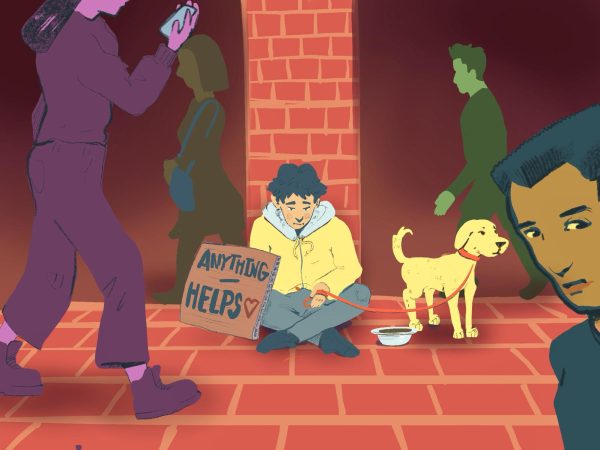Coercion is not consent: the dialogue following the Aziz Ansari scandal fails
January 25, 2018
It started with women sharing their stories of sexual harassment and assault with #MeToo.
The Time’s Up movement focused on the insidious sexual harassment in Hollywood.
It has been painful, but also legitimizing, to see perpetrators brought to justice. Harvey Weinstein. Matt Lauer. Kevin Spacey.
Women everywhere who have been intimidated, harassed and silenced found their voices.
A recent testimony in a Jan. 14 article on Babe.net changed the conversation and the movement.
The article was the account of one woman — referred to in the article under the alias Grace — and her date with famous comedian Aziz Ansari that ended in a sexual assault.
The article, titled “I went on a date with Aziz Ansari. It turned into the worst night of my life,” faced immediate backlash, but nowhere was the reaction more visceral than from CNN host Ashleigh Banfield.
According to Banfield, Grace was overreacting, and as a result jeopardized the whole movement.
“You had an unpleasant date. And you did not leave. That is on you.
And all the gains that have been achieved on your behalf and mine are now being compromised by the allegations that you threw out there — and I’m going to call reckless and hollow,” she said.
But Grace’s experience shouldn’t be so easily dismissed.
“Most of my discomfort was expressed in me pulling away and mumbling. I know that my hand stopped moving at some points… I stopped moving my lips and turned cold,” Grace told Babe.
During a traumatic event, your brain will produce certain hormones like catecholamines, which assist in the “fight or flight” response, but impair rational thought.
This makes sense if you’re under unbelievable stress, according to the Arkansas Coalition Against Against Sexual Assault.
“The parts of the prefrontal cortex that allow humans to do ‘IF this, THEN that’ do not work at their optimal levels when catecholamine levels are high,” according to the Arkansas Coalition Against Sexual Assault.
Your body, frozen in fear, loses the power of rational thought. Your body also produces high levels of opiate hormones, which act as “natural morphine” in the body, but inhibits the ability to communicate.
“I had to say no a lot. He wanted sex. He wanted to get me drunk and then fuck me,” Grace said.
Coercion is, in some people’s minds, the “gray” issue of consent. In Aziz Ansari’s statement, he maintained that the sexual activity at the end of the night was “by all indications consensual” and that he had “misread things in the moment.”
But here’s the deal: coercion is not consent. If you have to weasel, threaten, blackmail, intimidate, manipulate or in any way influence your partner, the decision to engage in sexual activity was not made mutually. Say it with me: coercion is not consent.
Grace shared her story and was vilified for it. “Boys will be boys” turned into “boys aren’t mind readers.” She did not send our movement back — she brought it forward.
This case has changed the conversation around sexual misconduct. I hope that we will begin to teach younger generations the difference between force and free will.















![Can’t buy me [self] love](https://vtcynic.com/wp-content/uploads/2024/04/self-care-FINAL-600x398.jpg)
